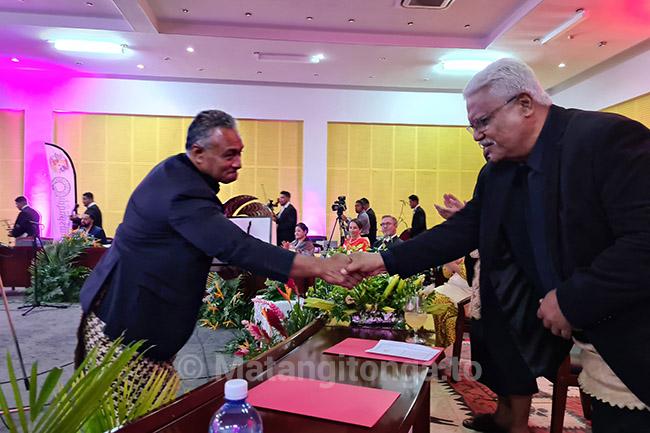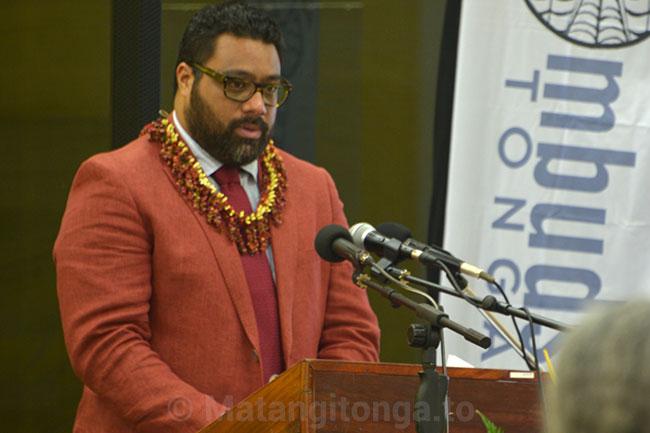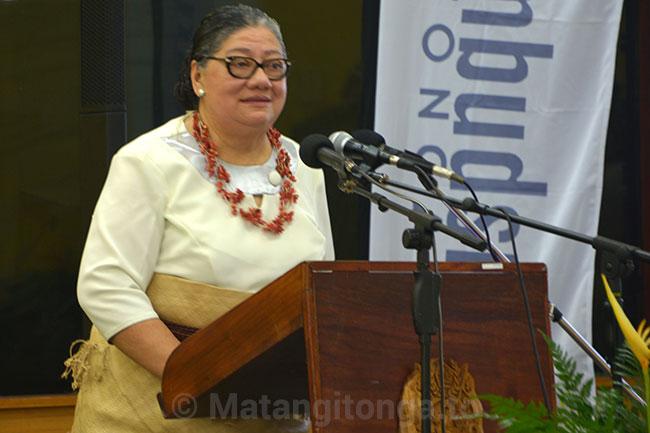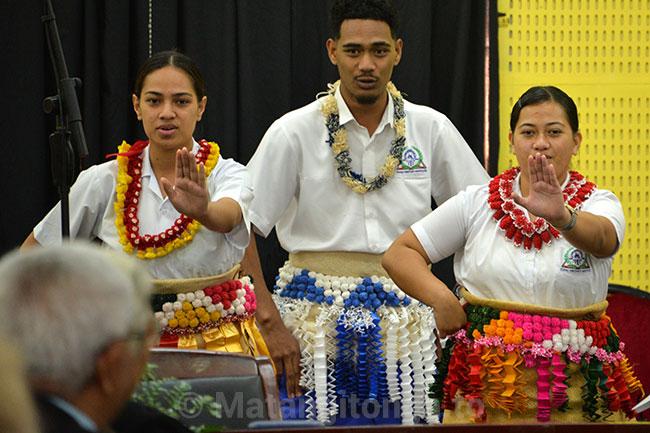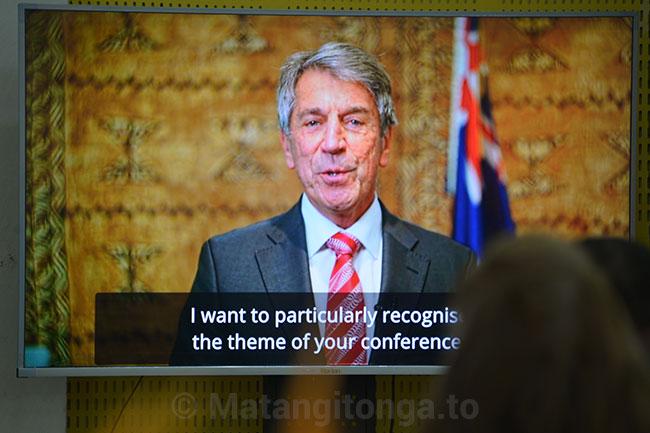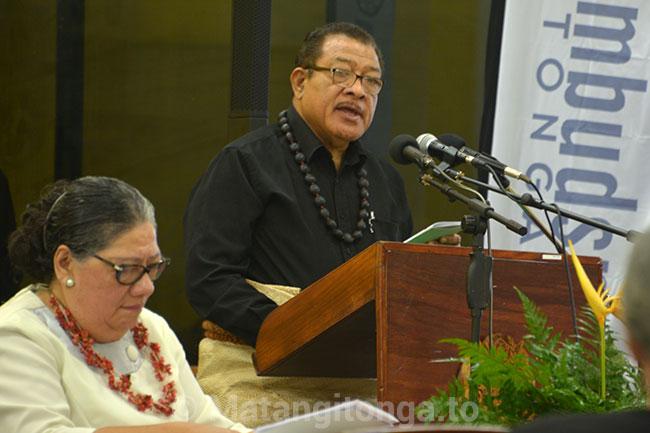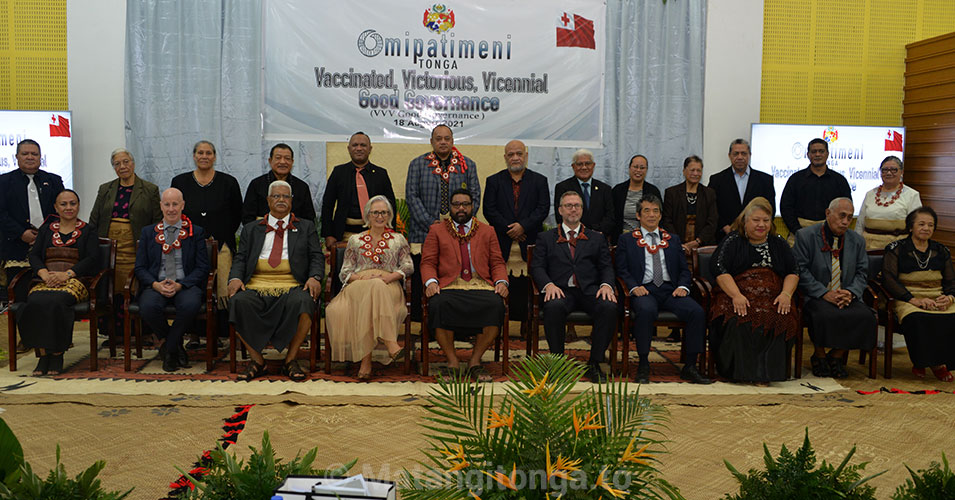
By Pesi Fonua
Tonga's Ombudsman gained Constitutional status this month (August 2021), two decades after the first moves were made to establish accountability and good governance within government through a public complaints process.
The basic function of an ombudsman is to investigate and report on complaints against public authorities. However, unlike a court, an ombudsman normally has no power to make legally binding decisions.
The Office of the Ombudsman on Wednesday, 18 August, celebrated the 20th anniversary of Tonga’s journey to establish their office.
During a special presentation held at the Fa'onelua Conference Centre, Nuku'alofa, they launched a booklet called “Ki-ama ‘o e Uanoa ‘i Ta‘u” or Milestones of Good Governance, which records the legal history of the journey.
In a keynote address, the Speaker of the Tongan Parliament, Lord Fakafanua said that the Office of the Ombudsman had finally gained Constitutional status on 11 August 2021.
“The Constitution of Tonga now recognises the Ombudsman as a Constitutional appointment,” he said.
An Act to amend the Act of Constitution of Tonga was passed by the Legislative Assembly on 26 September 2018 and His Majesty Tupou VI gave his assent to the Act to amend the Constitution on 29 July 2021.
The Speaker is responsible for recruiting the Ombudsman with the consent of the Legislative Assembly.
Milestones of Good Governance
The first Ombudsman, 'Aisea Havea Taumoepeau, SC, introduced the booklet ‘Milestones of Good Governance’, which says that the ombudsman institution is placed between the citizen and the state, and this “in the middle” position magnifies the important role the institution plays.
Compared to its Pacific neighbours, Tonga was a late-comer in setting up an ombudsman institution at the turn of the millennium, “although its institutional powers, jurisdiction and potential were not thoroughly realised by the government of the day”. It had evolved from a public complaints office.
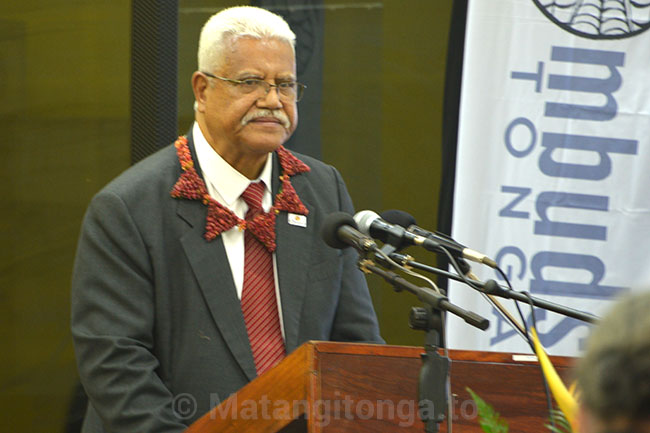
Public Complaints Office
In 1998 government established the Interim Government Committee on Public Complaints (IGCPC) under the Ministry of Justice with the objective to “promote quality service delivery, good administration (fair and responsive), accountability and good governance within government.” Unfortunately for history, there were no official records kept of the work of the IGCPC.
The office was set up during a time when people were facing difficulties in trying to practice their Constitutional rights.
Constitutionally, every citizen had the Right of Petition to the King and the Legislative Assembly, which could include petitioning on matters of government administration.
“However, the reality of such right[s] could have been limiting given the cultural and hierarchal context of petitioning to the King or the Legislative Assembly, particularly on trivial matters,” said the (unidentified) authors of the booklet.
Commissioner for Public Relations
On 20 December 2001, the Privy Council appointed Siaosi T. ‘Aho as its first Commissioner for Public Relations, serving from 2001 to 2004.
He was suceeded by Lupeha’amoa ‘Ilaiu as a temporary Acting Commissioner, until 20 July 2005.
Rev. Penisimani Tavalu Fonua took up the post until he retired in 2006.
Unfortunately, the Commissioner for Public Relations Institution then became inactive from 2006 to 2012.
At the time, Tonga was experiencing significant political unrest and in 2010 constitutional reforms shifted to a more democratically elected government by the people.
In 2007, the Anti-Corruption Act had been passed and Neil Adsett, a former Attorney General, was appointed as the inaugural Acting Anti-Corruption Commissioner.
There were also discussions over the possibility of merging the Anti-Corruption Commission and the Commissioner for Public Relations Institution under a Good Governance Commission, which did not come to pass.
However, ‘Aisea Taumoepeau, a former Attorney General and Minister of Justice, was appointed as the Commissioner for Public Relations on 24 October 2014 at a time when Tonga’s political landscape was changing.
In its infant years the office's lack of independence restricted its effectiveness and efficiency. However, the office gradually moved from a non-functional institution to one that is recognised as a proactive complaints handler today.
Legislative amendments in 2016 provided the changes.
The Ombudsman Act 2016, and its revisions made provisions for the establishment of the Office of the Ombudsman and related matters. Among other things, it requires under Section 3 (1) that “The Ombudsman shall be appointed after due recruitment process by the Speaker with the consent of the Legislative Assembly.”
Shifting the “appointing authority from the government to the Speaker with the consent of the Legislative Assembly guaranteed a realistic structural independence from the government executive,” said the writers of the booklet. “As a result the Ombudsman is an officer of Parliament. There is clear separation of the institution from many public policies of government.” Legal provisions protect the Office of the Ombudsman from executive or political interference. It has financial independence and staff are functionally independent to carry out their investigative duties.
According to the Milestones of Good Governance, ‘Aisea Havea Taumoepeau is Tonga’s first Ombudsman, and his term in office is from 2016 to 2023.
The Ombudsman Office “has an obligation to provide a platform that is independent and impartial for the public's complaints and provide the necessary redress.”
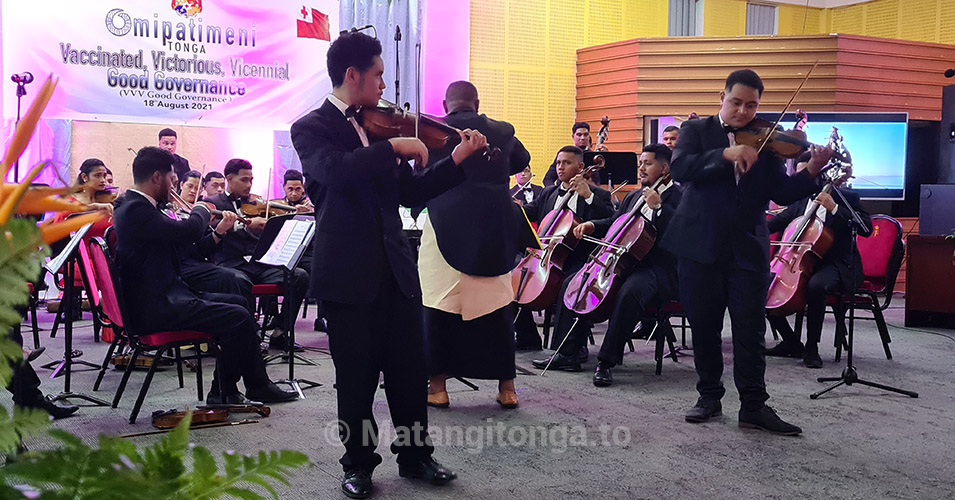
The 20th anniversary celebration of the journey was highlighted on Wednesday evening with a musical Festival with performances of popular music from Tonga Police brass band musicians; and the Tupou Tertiary Institute classical orchestra conducted by Savelio Mataele. Guest soloists included Sione Finau (Oboe); 'Atolomake Helu (Soprano) and 'Ofa Fe'ao (Tenor) with Lui Taufa, Siaosiula Lomu and Kasipa Piutau.
Longserving staff members of the Office of the Ombusdman were acknowledged at the event.


